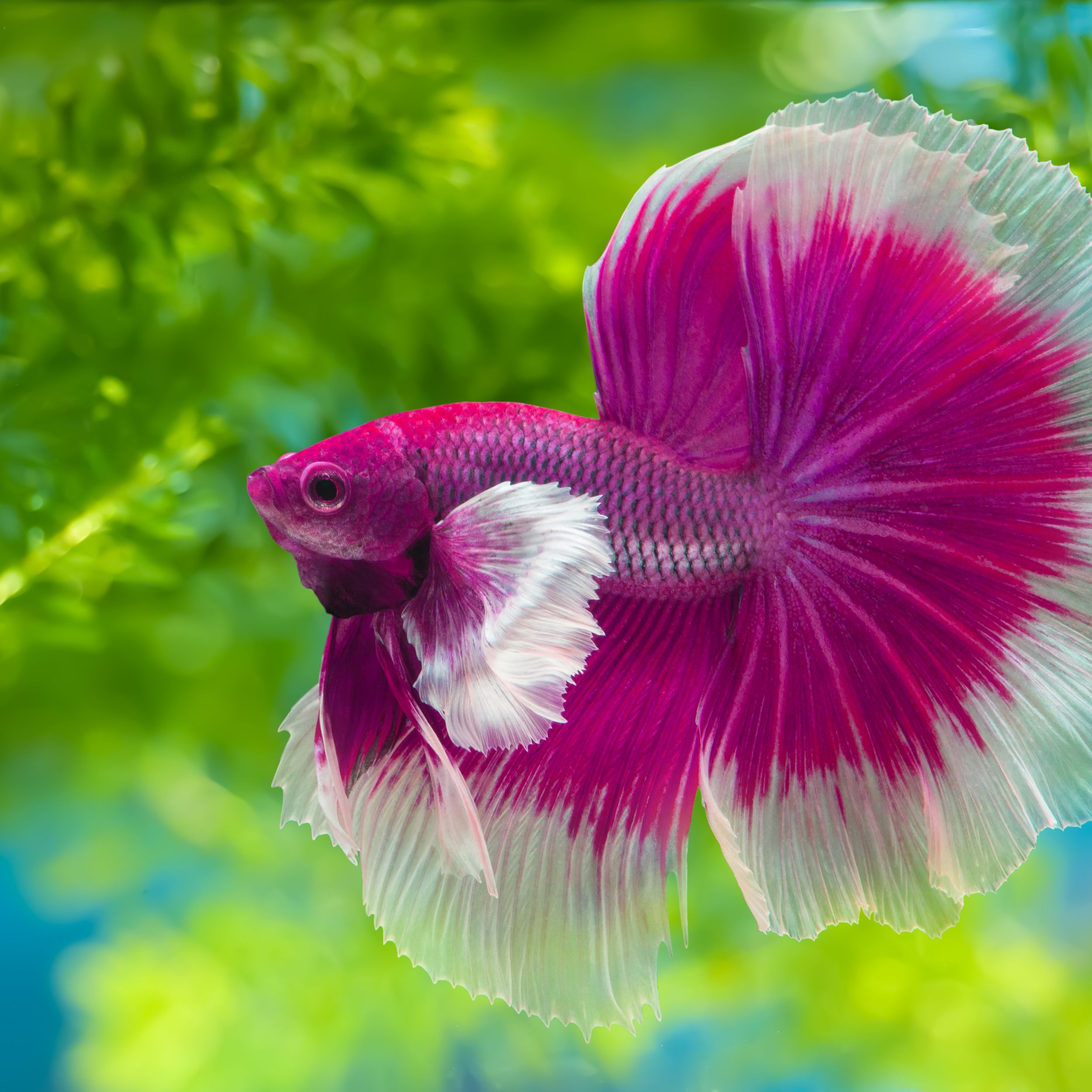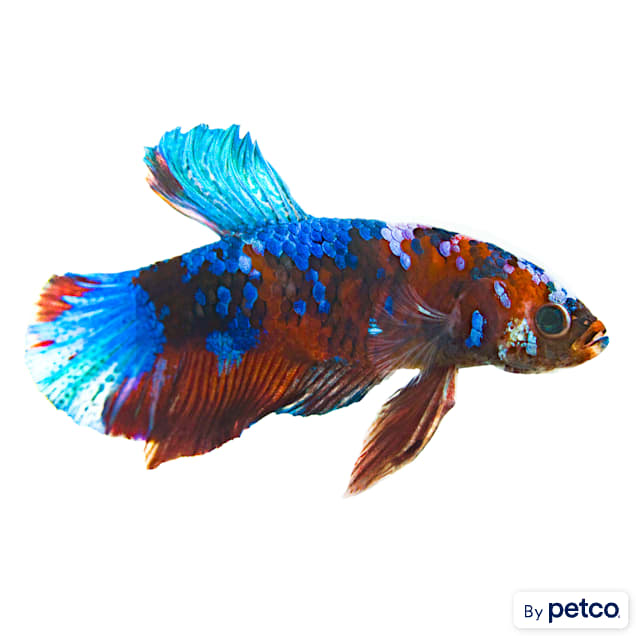Recognizing Betta Fish Habits: What Every Proprietor Ought To Know
Wiki Article
Everything About Betta Fish: Comprehending Their One-of-a-kind Demands, Habits, and the most effective Practices for Ideal Treatment
Recognizing the distinct requirements and habits of Betta fish is crucial for any type of aquarist looking to supply optimum care. betta fish. As we explore these components further, the ramifications for both novice and skilled fish keepers become significantly obvious, elevating inquiries about just how best to accommodate these amazing fish in our homes.Betta Fish Overview
Although often appreciated for their lively colors and flowing fins, Betta fish, scientifically recognized as Betta splendens, are intricate animals that call for particular care to flourish. Stemming from Southeast Asia, these freshwater fish are recognized for their territorial nature and distinct behaviors. Betta fish exhibit sexual dimorphism, with males presenting more dazzling shades and longer fins than females.Their aggressive propensities, particularly among males, require mindful consideration when housing them. Bettas are often kept in single-specimen containers to avoid territorial disputes. Nonetheless, they can coexist peacefully with certain compatible types in bigger area storage tanks, gave the atmosphere meets their demands.

To make sure ideal treatment, aquarists must understand their distinct behavioral attributes, dietary demands, and habitat needs. betta fish. With proper interest, Betta fish can show their vivid individualities and flourish in a well-kept aquarium setup
All-natural Habitat and Setting
Betta fish prosper in a varied variety of natural environments, mainly found in the shallow waters of Southeast Asia, including rice paddies, swamps, and slow-moving streams. These atmospheres are defined by warm temperatures, usually between 75 ° F and 82 ° F(24 ° C and 28 ° C ), and a pH degree varying from 6.5 to 7.5, which is perfect for their health and well-being.
In their natural environments, Betta fish are accustomed to dense plant life, supplying both sanctuary and breeding grounds. The existence of plants such as floating water lilies and thick lawns not only uses security from killers but additionally contributes to the oxygenation of the water, which is vital for their respiratory needs. Furthermore, these settings commonly have locations of still water, permitting Betta fish to exhibit their natural actions such as bubble nesting.
Understanding the natural habitat of Betta fish is crucial for aquarium fanatics. Replicating these problems-- through water temperature level, pH balance, and the addition of live plants-- can considerably improve the general health and durability of these fascinating fish, ensuring they prosper in a home fish tank setting.
Social Habits and Communications
Understanding the social habits and interactions of Betta fish is essential for successful aquarium management. Betta fish, or Siamese fighting fish, you could check here are recognized for their special behavioral traits, identified mostly by territoriality and aggression.Conversely, women Bettas exhibit less aggressive behavior and can exist together in teams, called sororities, if presented appropriately. However, it is vital to check their interactions closely, as pecking order and prominence can result in conflicts. Recognizing the dynamics within a Betta area is vital; establishing hiding places and ensuring enough room can minimize aggression.
Furthermore, Betta fish might likewise show inquisitiveness and social actions towards various other varieties. While they can exist together with specific non-aggressive storage tank friends, it is necessary to pick suitable types to avoid anxiety and aggressiveness. On the whole, identifying these social interactions is key to promoting an unified aquarium environment for Betta fish.
Vital Care Standards
Supplying appropriate treatment for Betta fish is critical to their health and wellness and well-being. To guarantee a successful atmosphere, it is vital to keep optimum water problems. The water temperature need to be maintained in between 76 ° F and 82 ° F(24 ° C to 28 ° C), while pH levels should range from 6.5 to 7.5. Normal water adjustments-- about 25% once a week-- assistance preserve water top quality.Betta fish call for a suitable container size; a minimum of 5 gallons is advised to provide ample room for swimming and hiding. Include decors and plants to create a stimulating atmosphere, but stay clear of sharp objects that might hurt their delicate fins.

Lastly, ensure the tank is outfitted with a filter to keep the water clean, but use a gentle filter to prevent solid currents that can worry the fish. By complying with these important care standards, owners can advertise a healthy and balanced and vibrant Betta fish.
Common Health And Wellness Issues and Solutions
In the treatment of Betta fish, recognition of common health and wellness problems is necessary for keeping their well-being. To deal with fin rot, enhance water conditions and think about utilizing a broad-spectrum antibiotic.Another typical condition is ich, a parasitical infection characterized by white areas on the fish's body (betta fish). Treatment includes increasing water temperature level and adding fish tank salt to the tank, as this can assist remove the parasite
Swim bladder see post condition is additionally frequently observed, resulting in buoyancy problems. This condition might arise from overfeeding or bowel irregularity. A fasting duration of 24-48 hours, adhered to by a diet of blanched peas, can supply alleviation.
Lastly, bettas may struggle with velour illness, suggested by a gold dust-like appearance on their skin. check it out Therapy usually calls for medicine especially created for external bloodsuckers, along with enhanced container health.
Normal tracking of water specifications, preserving a tidy setting, and offering a balanced diet are vital safety nets. By dealing with these health issues quickly, Betta fish can lead much healthier, much more vibrant lives.
Final Thought
In summary, effective betta fish treatment requires an understanding of their special needs and behaviors. Regular tracking of health and water high quality, along with a well balanced diet plan, adds to the longevity and vibrancy of betta fish.Report this wiki page